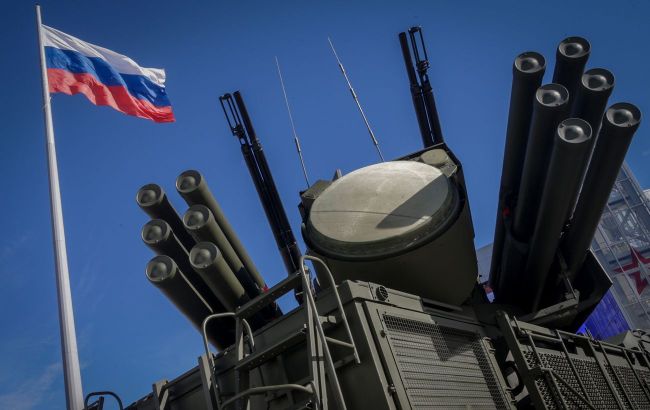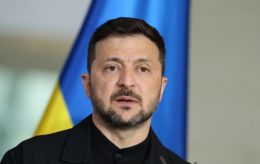Russian forces actively seek ways to counter Ukrainian drone attacks - ISW
 Russian forces seek a decentralized approach to defending against Ukrainian drone attacks (photo: Getty Images)
Russian forces seek a decentralized approach to defending against Ukrainian drone attacks (photo: Getty Images)
Russian militaries are attempting to develop a systematic approach to effectively repel Ukrainian drones that regularly attack Russian territory, according to a report by the Institute for the Study of War (ISW).
It is noted that Ukrainian drone attacks deep inside Russia continue to strain the aggressor's air defense system, compelling the Russian military command to prioritize the allocation of limited air defense resources to cover critical targets.
Ruslan Pukhov, head of the Moscow Center for Analysis of Strategies and Technologies and a member of the Civil Advisory Council at the Russian Ministry of Defense, stated on July 16 that such localized air defense coverage (static coverage of a single target) is ineffective on a larger scale, as it allows Ukrainian drones to circumvent Russian air defense and strike from uncovered directions.
"The Russian military apparently lacks the required conventional air defense systems to protect all critical facilities within western Russia and has even struggled to cover important potential targets in reportedly well-defended areas within Russia," analysts from ISW noted.
Additionally, Pukhov urged the Russian military to adopt an innovative decentralized approach to protect the country's assets from Ukrainian drones, warning that drones will continue to penetrate deeper into Russia.
The ISW report highlights that in March 2024, the Russian military began forming mobile decentralized fire groups, which Ukrainian Air Forces successfully deployed to defend against strikes by Russian Shahed-136/131 drones. However, these groups have not yet been deployed on a sufficient scale to adequately protect critical assets in western Russia.
"Continued pressures on Russia's air defense umbrella have led select regional authorities to explicitly state that Russian companies and local authorities cannot rely on federal-level Russian air defenses and need to provide for their own anti-drone capabilities," stated the Institute for the Study of War.
The report specifically mentions that Pukhov proposed deploying a fleet of light aircraft by the Russian military to intercept Ukrainian drones. However, he noted that such measures are complicated by the insufficient production level of light aircraft in Russia.
Attacks on the territory of Russia
Over the past few months, the Ukrainian Air Forces have been regularly targeting critical infrastructure objects, oil refineries, and oil depots in Russian territories.
For instance, on the night of July 16, drones attacked a low-voltage equipment plant in the settlement of Korenevo in the Kursk region.
Throughout the night, unmanned aerial vehicles targeted 4 regions of the Russian Federation and temporarily occupied Crimea.
Meanwhile, satellite imagery reveals that the Russian army has deployed at least seven medium-range Pantsir-S1 air defense missile systems around the residence of President Vladimir Putin in Valday, Leningrad region.

